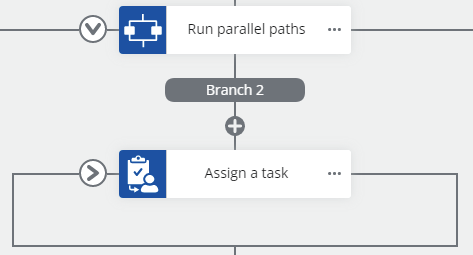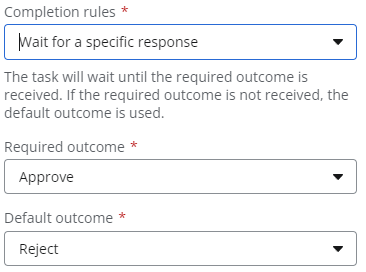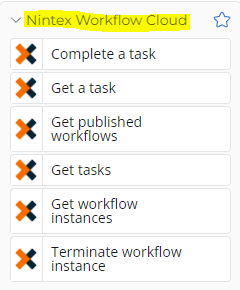I have a workflow where various people must submit approvals in parallel. However, if any one user does not approve, the workflow terminates. This works as expected, except there are orphaned tasks that were started. How do I get those to terminate as well? I have already set an end condition for the parallel path and trigger it when a person denies it, but the orphaned tasks remain active.
Reply
Enter your E-mail address. We'll send you an e-mail with instructions to reset your password.








